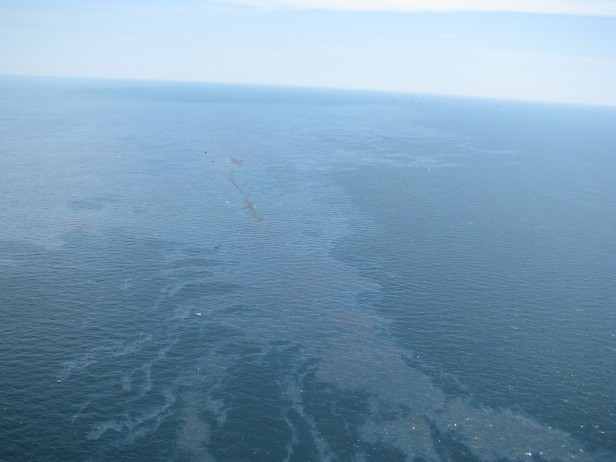The Cape Wind project just approved for the waters offshore of Massachusetts will pump $1 billion into the local economy and create clean, reliable wind energy for decades.
The BP oil rig in the waters of the Gulf of Mexico is spewing millions of gallons of petroleum toward the coastlines of four states, incurring $6 million per day in cleanup costs and estimated to top $3 billion before it’s all over, not counting fines or damage claims from communities and the fishing industry.
Could there be any more dramatic examples this week of our choices as we invent and invest in the future of America’s energy supplies? Ironically, the current BP oil disaster spiraled out of control on the 40th anniversary of Earth Day, an annual observation that was created in part in response to a similar oil rig blowout in 1969 off the coast of Santa Barbara, Calif.
President Obama, who recently gave the green light to more domestic offshore oil drilling, pledged to make sure such disasters would not recur. “We’re going to make sure that any leases going forward have those safeguards,” said President Obama. “I’ve always said it must be done responsibly, for the safety of our workers and our environment.”
Sound familiar? It should, if you listened to President Nixon 40 years ago when he spoke about the Santa Barbara oil rig blowout. “What is involved is the use of our resources of the sea and of the land in a more effective way and with more concern for preserving the beauty and the natural resources that are so important to any kind of society that we want for the future,” said President Nixon.
Obviously, despite the fact that most rigs that don’t explode, we have not sufficiently improved safety — or preparation to respond — to offshore oil rig disasters. Moreover, we haven’t learned the most important lesson, which is that we must evolve beyond our dependence on a resource that is limited by Mother Nature and controlled by a few companies that are only concerned with their own bottom lines.
The sad truth is that the financial fortunes of Unocal (then Union Oil) survived the 1969 blowout just fine, as did Exxon/Mobil (then Exxon) survive the Valdez, Alaska spill in 1989 and BP will survive this current disaster, because the cost of cleanup of the few big spills is less than the cost of preventing such disasters in the first place. It is also less than the cost of preparing to respond immediately and adequately to such disasters in every location around the world where they might occur.
If regulators and businesses took the words of two Presidents seriously, we might begin to pay the true cost of our oil addiction at the pump and stop forcing others to pay for it on our behalf. The next time someone tells you that fossil fuels are cheaper than renewable energy, ask them if that remains true when you add in the lost lives and livelihoods that span the globe from the Gulf of Mexico to Valdez to Santa Barbara to the Delta region in Nigeria, not to mention the coal producing regions of West Virginia, Kentucky, and China.
All of this is made more tragic because we have alternatives. The wind, the sun, moving water, biomass, and geothermal resources don’t spill. Once the technology is in place to use them, the fuels cost nothing and therefore provide economic and geopolitical certainty. If this is not a teachable moment, if also a tragic one, for our leaders, businesses, and consumers alike, then I can’t imagine what will be.



